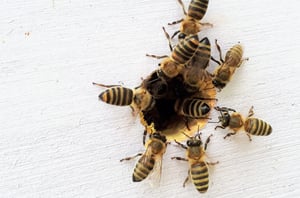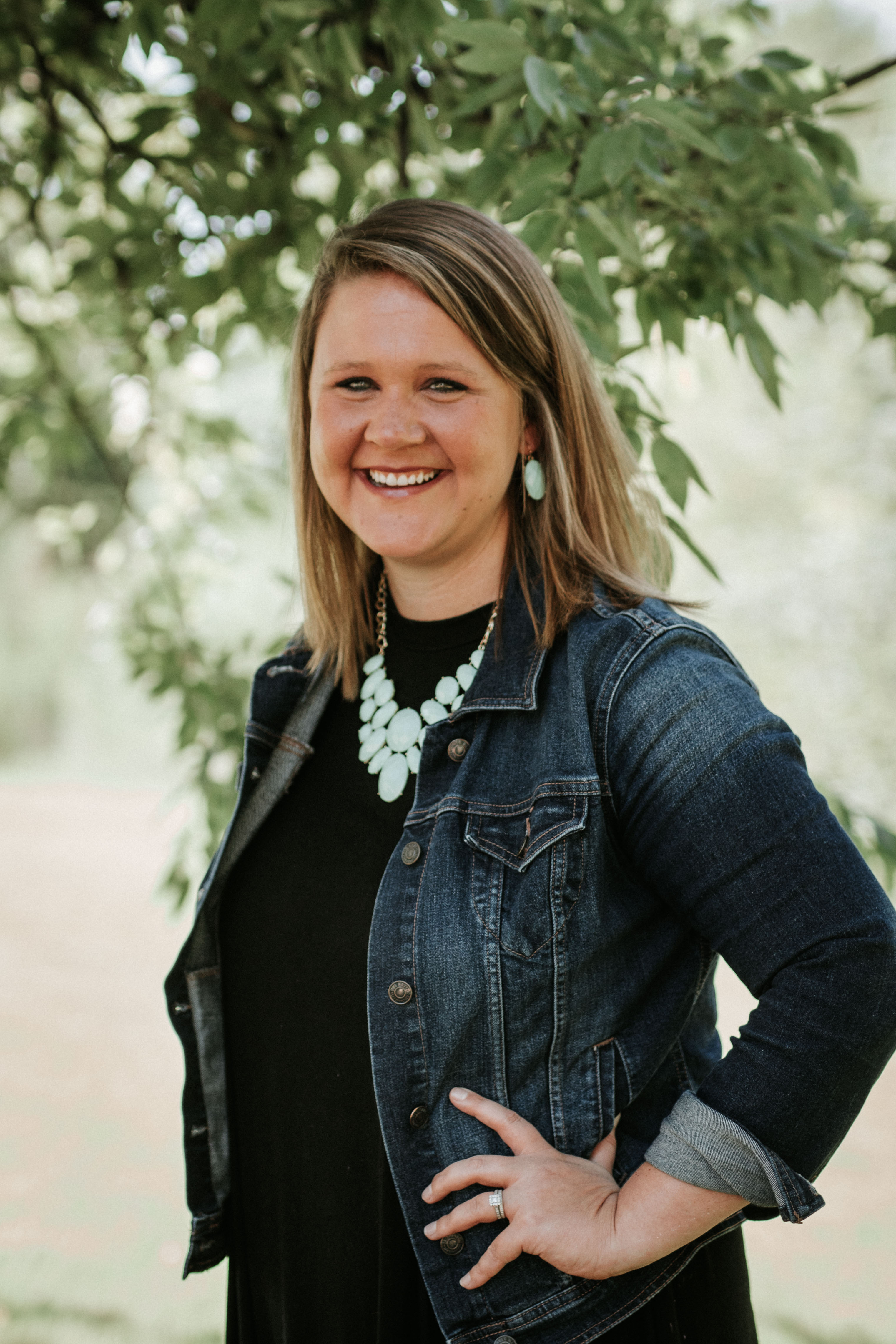 This past week my daughter was playing in the backyard when she suddenly ran inside yelling “Daddy, there’s things flying everywhere in the air!” When he went to look, he found a giant swarm of bees and quickly ushered her and our Golden Retriever inside. After a little investigation, we found there was a large beehive in our neighbor’s tree. For all the obvious reasons I was worried for our safety—we’re not sure if our girls are allergic to bees yet—but I was also disappointed. Like many homes with small children, things can get loud, chaotic, and overwhelming. Our backyard has become a sanctuary while we’ve been sheltering in place and now this bee Armageddon was taking that away.
This past week my daughter was playing in the backyard when she suddenly ran inside yelling “Daddy, there’s things flying everywhere in the air!” When he went to look, he found a giant swarm of bees and quickly ushered her and our Golden Retriever inside. After a little investigation, we found there was a large beehive in our neighbor’s tree. For all the obvious reasons I was worried for our safety—we’re not sure if our girls are allergic to bees yet—but I was also disappointed. Like many homes with small children, things can get loud, chaotic, and overwhelming. Our backyard has become a sanctuary while we’ve been sheltering in place and now this bee Armageddon was taking that away.
It’s taken our household a solid 8 weeks before the stir-crazy behaviors and emotions started ramping up. My husband is a major introvert and therefore has taken easily to house arrest, whereas I could go either way. I found ways to get out of the house, calling dibs on grocery shopping, going for drives, and picking up our takeout orders. At first with all the sudden changes in routine, I had the looming feeling of “when is the other shoe going to drop?” and then when it didn’t automatically, I thought, “our kids are young, they’re not in formal school yet, so they won’t know the difference. We’ll be fine!” And mostly it has been fine for them. But for me I’ve noticed I’ve begun defaulting more and more to parenting from the gut. All the training and education I have about child development, positive parenting, and the “why” behind behaviors and emotions are in a locked room in my brain that I can’t seem to open as readily as I once had.
I’m a licensed professional counselor and sometimes have self-imposed guilt because I went to school to figure out how to deal with big emotions. I have an earned secure attachment style, yet the dismissive tendencies of not wanting to engage with anything or anyone is in full force more than I’d like. “You’re fine.” “Don’t cry.” “Just go play.” “No, you can’t go play with the bees.” “Why did you do that?” I can’t stand being asked why I did something in the heat of conflict---it seems shaming and sometimes I honestly don’t know why I did or said something—more likely it’s that I don’t want to expend energy in figuring it out but that’s a topic for another day. As a result, my 4-year-old reacts by getting needier, wanting more of my attention and affection, and can resort to experimenting with lying, tantrums, and occasionally regressing—all which are age appropriate, especially in the pandemic-y world we live in currently. It’s a loop that’s hard to stop once you’re in its gravitational pull. And it takes a self-aware and non-defensive parent to disrupt that cycle. Or a husband that doesn’t get his feathers ruffled easily. When he senses a loop starting, he’ll disarm it with playfulness or a stern but gentle response.
Sometimes, for me, the disruption in the negative feedback loop can come in the form of an article, a quote, or when someone says something that is a gut punch. I am knocked out of my self-induced coma and the door to that locked room in my brain flings wide open. Recently, a colleague sent me the article, “When Your Child Gets Angry: The Cheat Sheet.” The author succinctly reminds parents that we are the examples our children are looking to when it comes to figuring out how to be a person in the world and how to respond when things don’t go our way. So, as a parent, we must pause, drop our personal agenda, breathe and remember it’s our choice in how to respond. We can continue our default approach and blame, shame, ignore, and yell or we can take a minute and remember it’s not as personal as it feels, and be the calm in the storm. I find myself jumping to teaching while my daughter is still very loudly crying instead of waiting for everyone to calm down and reconnect. Again, when someone doesn’t feel heard, understood, or seen, frustration and anger only build, and the chasm of disconnection widens. Children, like all humans, were meant for connection to others and were not meant to do everything on their own.
Speaking of needed gut punches—Tina Payne Bryson, an author and psychotherapist, recently posted this quote on Facebook from John Kabat-Ziinn’s book, Everyday Blessings: The Inner Work of Mindful Parenting:
"Each difficult moment has the potential to open my eyes and open my heart. Each time I come to understand something about one of my children, I also learn something about myself and the child that I once was, and that knowledge acts as a guide for me. When I am able to empathize and feel compassion for a child's pain, when I am accepting of the contrary, irritating, exasperating behaviors that my children can manifest, try on, experiment with--the healing power of unconditional love heals me as it nourishes them. As they grow, I grow. My transformations are inside ... Each time I choose to be kind instead of cruel, to understand rather than judge, to accept rather than reject, my children, no matter what their ages, are nourished and grow stronger."
 As the good Millennials we are, my husband and I Googled what to do with a beehive. What we learned is that the bees will move on after a few days when the hive gets too big. It takes every bee working together to relocate while keeping the queen safe. Sometimes my own emotions can feel like hundreds of bees flying in different directions when my daughters “kick my nest.” But in order to truly see their needs, I’ve got to learn to pause. In those moments, my hope is to gently notice and find grace when I default to my gut parenting approach. And then get back to doing the hard, necessary work of connection and empathy.
As the good Millennials we are, my husband and I Googled what to do with a beehive. What we learned is that the bees will move on after a few days when the hive gets too big. It takes every bee working together to relocate while keeping the queen safe. Sometimes my own emotions can feel like hundreds of bees flying in different directions when my daughters “kick my nest.” But in order to truly see their needs, I’ve got to learn to pause. In those moments, my hope is to gently notice and find grace when I default to my gut parenting approach. And then get back to doing the hard, necessary work of connection and empathy.







